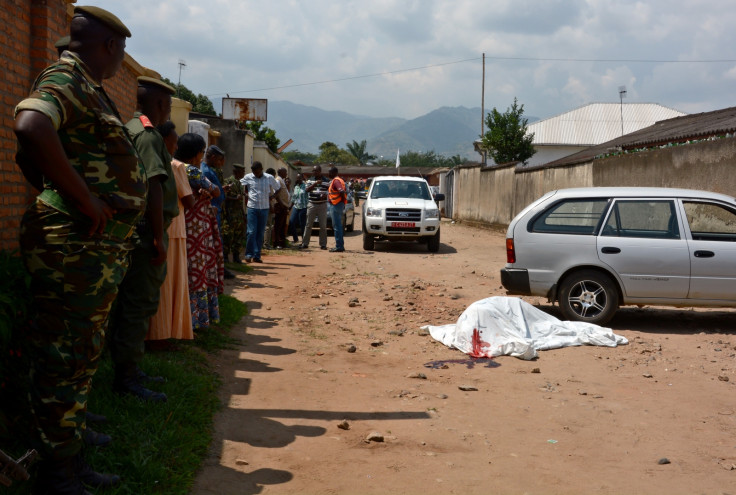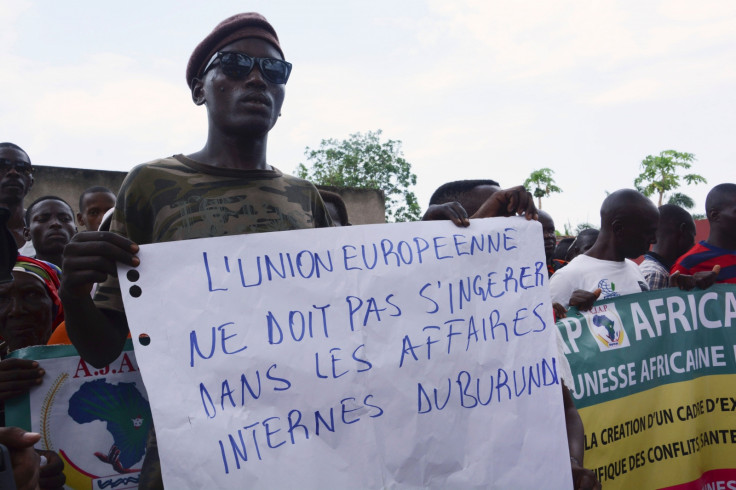International community is failing to prevent crimes against humanity in Burundi, claims diplomat
EXCLUSIVE: Diplomat says world is failing to move on to the final phase of prevention of crimes against humanity

The international community is failing to cross the Rubicon and prevent a latent "genocide" in Burundi, a prominent diplomat has said, in the wake of Burundi's withdrawal from the International Criminal Court (ICC).
Less than six months after the ICC said it was opening a preliminary examination into grave crimes committed in the African nation since the beginning of its deadly political crisis in April 2015, 94 out of 110 Burundi legislators approved the withdrawal plan on 12 October.
ICC withdrawal: Coached to dare what others haven't?
Several African states, which form the majority of the 124-strong ICC membership, have announced their intention to pull out of the court, as they say all the 23 cases the ICC are investigating are in Africa – something they perceive as being biased towards the continent.
In the diplomat's view, Burundi's withdrawal may become an example for other African states wishing to exit the world court's jurisdiction as it would set "a sort of jurisprudence", but the formal official hinted Bujumbura may have been coached into leaving the ICC.
"Those countries who were scared of leaving can now be encouraged or incited to leave, by taking example on Burundi. They are the ones who may be behind, or at least support, Burundi's decision."
Burundi became the first state to ever withdraw from the Hague-based court which investigates and prosecutes cases of genocide, war crimes and crimes against humanity.
A retired Burundian diplomat speaking on condition of anonymity to IBTimes UK gave his assessment that the international community's lack of consensus over actions to take in Burundi means that the authorities are pushing ahead with a plan to avoid avoid being held accountable for alleged crimes.
"The government is engaged in a rationale of denial - they refuse to dialogue with everyone including the United Nations (UN) – so answering the ICC would be even worse for them. In its current position, its seems logical to me that Burundi would want out," said the former diplomat, who unofficially helped draft a report by a coalition of Burundian NGOs for the United Nations (UN) Committee against Torture.
"The international community has tried everything it could but has so far failed to move on to the final phase of its prevention of crimes against humanity – a crime of genocide that we are afraid of considering what happened in the region," he said, in reference to the 1994 Rwanda genocide which left between 800,000 and 1 million dead.
"There is a big risk (in Burundi) – everyone is talking about it. Unfortunately, the international community is failing to cross the Rubicon and prevent the genocide."
The looming risk of genocide has been lessened by people in Burundi, who have claimed that the low-level guerrilla violence and crackdown do not qualify as a genocide – unlike deadly events of 1972 and 1993.
'We are not taking action to prevent genocide'
Burundi's crisis is political and a long-lasting end to the violence can only come once warring sides agree on a negotiated settlement. This, the diplomat said, is currently impossible because of the government's refusal to negotiate with the armed opposition.
While he spoke of a lack of total consensus within and between the regional and international organisations, the diplomat said the different resolutions voted by the African Union (AU) and its Peace and Security Commission (PSC), the UN Security Council and the Human Rights Council did show a "very clear position".

"Alas, we are not taking action (to prevent genocide). The world needs to know that the state, lawmakers and the people are held hostage," he said, adding that these organisations should push forward with sending the AU-backed protection force (MAPROBU), human rights and military observers, and UN Security Council-sanctioned police force.
In January, the AU dropped its plan to send 5,000 peacekeepers to Burundi to stop the country from spiralling into anarchy, after the strife-torn nation's government declared it "too early" for a military intervention on its soil. The European Union (EU) already adopted sanctions against four top Burundi officials in October 2015 – measures commentators say have had only a limited impact. This month, demonstrators held placards reading 'The EU must not interfere in Burundian home affairs' as people protested against the EU, the ICC and the UN Resolution against Burundi in Bujumbura.
"They need to be sent to at least observe what is taking place and try to protect the little people they can protect. Burundians are hostage and are suffering."
Observers and local rights groups have been documenting crimes committed in and around the capital. The diplomat, however, acknowledged that little is know about the extent of the abuses in the collines (districts), areas international observers have been barred from accessing. An independent media blackout and sense of dread also makes it difficult for news to travel.
© Copyright IBTimes 2025. All rights reserved.





















